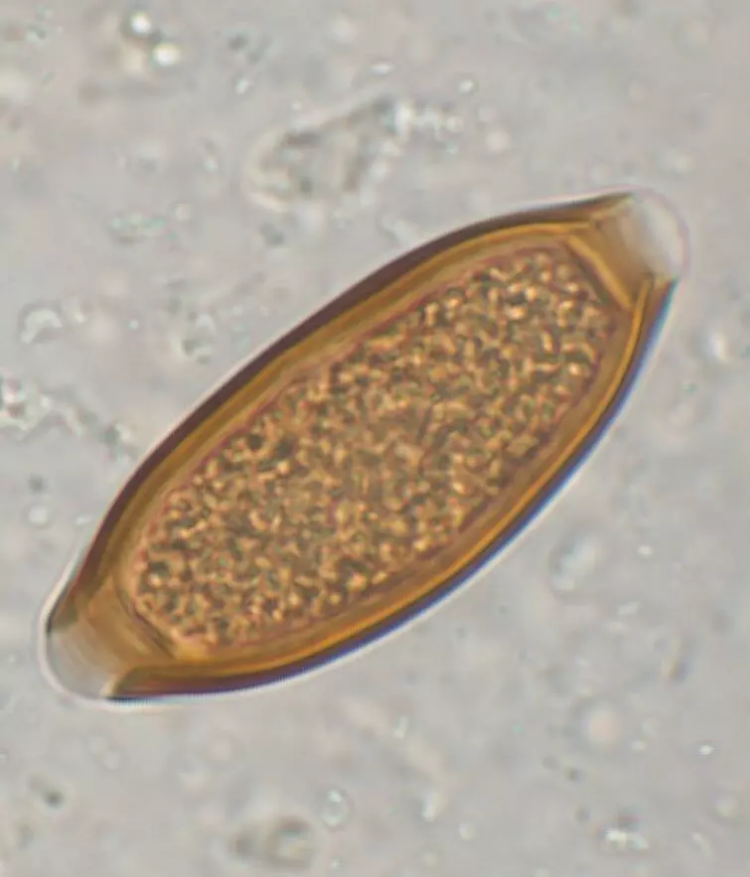A research team within the University of Calgary's Faculty of Veterinary Medicine (UCVM) has discovered a new parasitic roundworm infecting human patients in West Africa.
The work, accepted for publication in the journal Emerging Infectious Diseases, reports on a new parasite species, Trichuris incognita, which is poorly controlled by currently available drugs. The UCVM team includes Dr. Abhinaya Venkatesan, PhD'23; Dr. John Soghigian, PhD, assistant professor; and Dr. John Gilleard, PhD, professor of parasitology and associate dean of research.

From left: Abhinaya Venkatesan, John Soghigian, and John Gilleard.
This work is part of Gilleard's wider research program on drug resistance and molecular diagnostics of parasites of both animals and humans.
"This particular work focuses on soil-transmitted helminths (STHs), a group of parasitic worms that pose a significant global health challenge affecting approximately 1.5 billion people worldwide," says Gilleard. "These parasites cause diseases that have most impact on people living in poverty and are particularly prevalent in tropical and subtropical regions where sanitation is poor and access to clean water limited."
STHs include gastrointestinal parasites including hookworms, whipworms and large roundworms. Their control is very dependent on drugs, such as albendazole and ivermectin, which are regularly administered to at-risk groups such as children and women of reproductive age in endemic regions. There have been increasing concerns of these parasites developing drug resistance.
Consequently, the team examined parasitic worms from clinical trials conducted in several countries by Dr. Jennifer Keiser, PhD, and colleagues from the Swiss Tropical and Public Health Institute. These trials tested the efficacy of ivermectin and albendazole being used as a combination.
"There was a suspicion of something odd, because the drug combination was substantially less effective in a clinical trial in one country relative to others," says Venkatesan, who conducted the research as part of her PhD thesis work. "Our genetic analysis revealed the parasitic worms from Côte d'Ivoire, West Africa, were a different species to those at the other study sites. In fact, it is a completely new species and more similar to a parasite that infects pigs than those normally found in humans."
The discovery of Trichuris incognita illustrates the need for improved diagnostics and monitoring for this group of parasites that cause important neglected tropical diseases in many parts of the world.

Microscope image of a parasite egg. Photo Credit: John Gilleard
"The fact that this new parasite species is not well-controlled by a drug combination that the World Health Organization is incorporating into global control programs is a major concern," says Gilleard.
Soghigian, who collaborated on the genetic analysis of the parasite, adds: "There is an urgent need to apply the tools that we have developed in this work to determine the geographic distribution of this new parasite species and how it may impact current and future control strategies."
This research reflects UCVM's commitment to transdisciplinary One Health approaches that integrate human, animal and environmental research to tackle problems of both local and global importance.
For more information on the parasitic disease research undertaken by Gilleard and his team at UCVM , visit the Gilleard Lab website.










